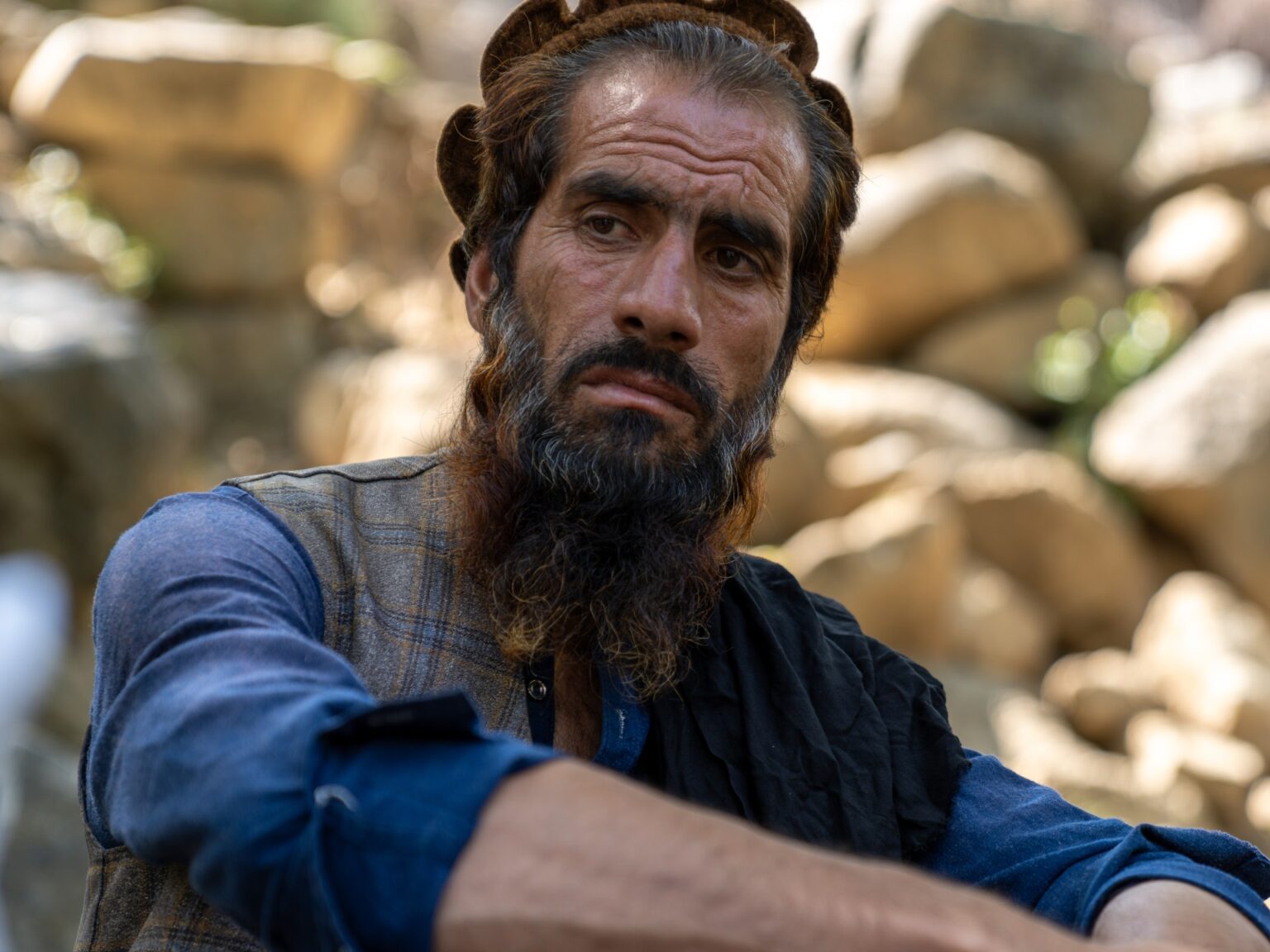A few metres away from the piles of stones that were once the first homes as you entered their small village, three men sat on a traditional woven bed.
One of them was Hayat’s cousin, Mehboob.
“When the earthquake happened, my 13-year-old son Nasib Ullah was sleeping next to me. I woke up, got out of bed, and started looking for the torch. Then, suddenly, the whole room moved from the falling rocks. When I tried to reach my son, the wall and the floor slid down, and I couldn’t catch him,” the 36-year-old explained.
“[It was] worse than the day of judgement.”
“Houses collapsed, boulders from the mountain came crumbling down; you couldn’t see anything, we couldn’t see each other.”
Everyone was injured, he explained. Some had broken ribs and broken legs.
“In the dark, we took our kids who were still alive to the farmland below, where it was safer from the boulders.”
![Children's clothes left on the ground following the earthquake [Sorin Furcoi/Al Jazeera]](https://www.aljazeera.com/wp-content/uploads/2025/10/SOR02669-1759489069.jpg?w=770)
That night, he counted more than 250 tremors, he said: aftershocks that continue to shake the valley even weeks after the earthquake.
When daylight came, he tried to dig through the rubble to find his loved ones. “But my body didn’t want to work,” he said.
“I could see my son’s foot, but the rest of his body had disappeared under the rubble.”
His 10-year-old daughter, Aisha, had also been killed.
“It was the worst moment of my life,” he said.
It took two days for villagers and volunteers to recover the bodies.
When Hayat’s brother, Rahmat Gul, received a message from his brother telling him that the entire village was gone, he immediately rushed there from his home in Parwan province, some 300km (185 miles) away.
When he finally reached Aurak Dandila, the surviving villagers asked him to wrap Mehboob’s dead son in a blanket.
“Mehboob asked me to show him the face of his son, but I could not do it,” Rahmat Gul explained as Mehboob, sitting beside him, looked out over the farmland in the valley below.
Nearby, Hayat stood up and began pacing.
“God has taken my sons from me, and now I feel like I have left this world as well,” he said.
In Aurak Dandila, a small cornfield has become a graveyard. “Here is where we buried our loved ones,” Hayat said. The graves are marked by stones.
He remembers how he had urged Abdul Haq to stay in the village. “The next day, everything was gone, and he lost his life.”
Now, Hayat believes, “there is nothing left to live here for”.
“How can I continue living here?” he asked, pointing at the debris of what was once his home.
“The stones are coming from above; how can anyone live in this village?”
“We will settle somewhere else, and we will look for the mercy of God. If he has no mercy on us, then we will also die.”
https://www.aljazeera.com/features/longform/2025/10/5/when-stones-fell-from-the-sky-the-night-an-afghan-village-was-destroyed?traffic_source=rss


